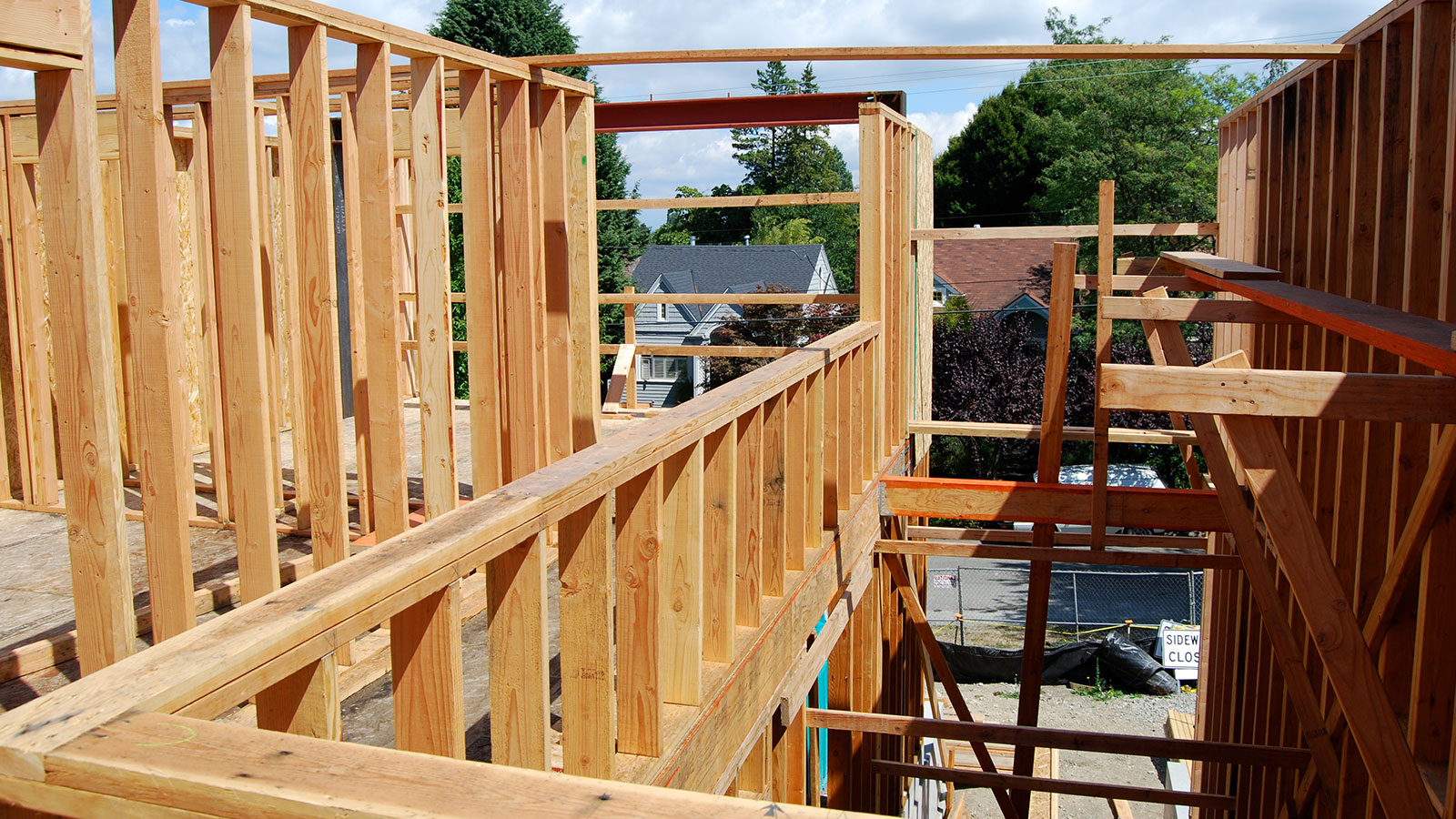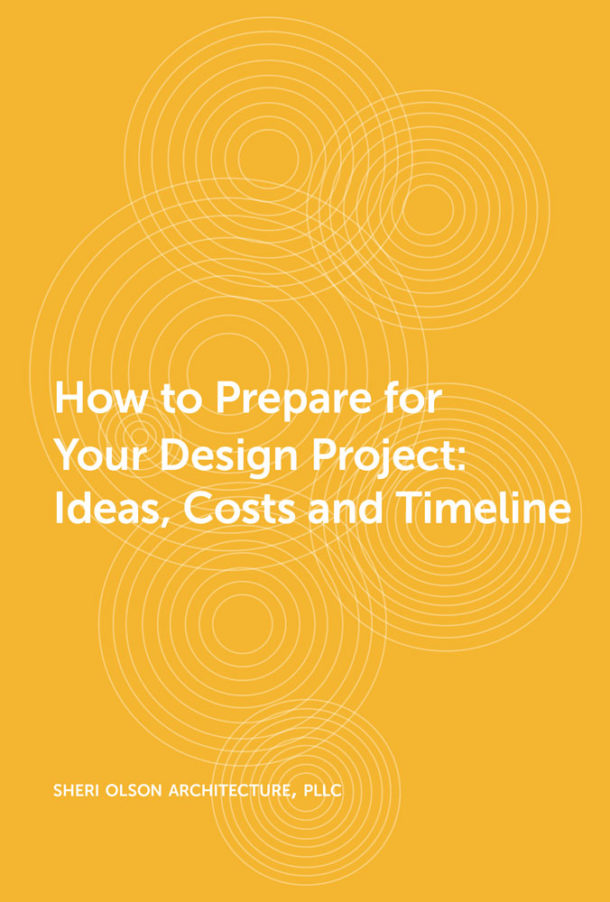How to Select a Contractor

When planning a new home or major remodel, it’s best to choose your architect first. Following are 10 questions to ask a contractor that your architect recommends.
The best resource for finding a contractor is your architect. We have either worked with contractors that we can recommend or have architect colleagues that have worked with contractors they recommend. If you get three residential architects in a room within minutes, we will be talking about contractors. Our client’s happiness depends so much on this that we are continually swapping information on who is doing great work, who has the best superintendent and who has competitive pricing. Even better, we know who to avoid.
When you have a list of 3 or 4 contractors, here are some questions to ask:
1. Is the contractor licensed, bonded, and insured?
You can find all of this information at https://secure.lni.wa.gov/verify/.
Search by company name to see if their license is up-to-date, as well as, bonding, insurance, and worker’s compensation information.
While you’re online, also check for unresolved complaints at the Better Business Bureau:
www.bbb.org. Even good contractors can have complaints, but you want to see if they were resolved.
2. Ask for at least three client references and then call them.
The first question you should ask is:
- Would you recommend this contractor to a friend? If no, then you have your answer.
If yes, then you can also ask:
- Did the contractor communicate clearly?
- How was the quality of craftsmanship?
- Was the project finished on schedule?
- Was it within the budget and, if not, what were the areas of extra cost? Often client initiated changes were the source of additional cost… “While you’re here can you ______.”
- Did you feel the contractor was fair and honest?
- Is there anything else I might want to know before hiring this contractor?
3. Ask the contractor about workload, potential starting dates, and how long it’d take to finish your project?
Even though the housing market is cooling in Seattle from crazy to normal, contractors are still in high demand, and clients may need to plan to get on a contractor’s schedule. If your architect is in frequent communication with preferred contractors, they may be aware of unexpected openings and can help get you on the calendar earlier.
Also be aware that for economic reasons, there are fewer sub-contractors available in recent years, and this can make scheduling them in sequence difficult and make project construction times longer.
4. Does your project fit the contractor’s experience and expertise?
You don’t want your ground-up, new construction house to be the first for a contractor, but you also don’t want your kitchen remodel to be overlooked by a firm with a focus on much bigger projects.
5. Does the style of the houses they build match the style of your new home?
You might think this question applies more to selecting an architect than a contractor, but if your contractor only has experienced with, for example, craftsman style, then they might have difficulty with the details of a modern house. Better yet, ask them if you can visit a project they completed with a similar scale, budget, and style.
6. Will the contractor sign an American Institute of Architects (AIA) Owner Contractor Agreements?
The AIA contracts are vetted by a slew of lawyers and are, frankly, biased toward owners so they can be trusted to represent your best interests. If a contractor doesn’t use an AIA contract, ask to see a copy of their agreement, and have your lawyer review it. It costs money to do this, but it is money well spent to protect your interests and avoid problems down the line.
7. What does the contractor’s typical estimate, billing statement, and project schedule look like?
It’s important to see these documents since so much will be riding on them for your project. A detailed cost estimate can serve as a tool for making educated budget decisions. It is also a way for your architect to see if anything was overlooked in an estimate—mistakes happen, and you want to catch them before you start construction. If a billing statement is so byzantine that it is impossible to unravel you don’t want to sign on for months of forensic accounting. If the contractor does not regularly provide project schedules, that can also be a warning sign.
8. Who will the point person will be on your project?
It will most likely not be the charming person you interview. That’s okay, but you need to know that there will be a person assigned to your project that you can call if the tarp blows off your roof at 2 am. Typically, there will there be a project superintendent on site daily who will know all the ins-and-outs of your project.
9. What is the source of day laborers on the site?
For safety and peace of mind, you need to know that the people working on your home are accountable and traceable. It’s not a good idea to use day laborers that a contractor may have found at a Home Depot parking lot: make sure they know who is on your project.
10. You’re going to be spending a lot of time with your contractor, are you compatible?
It’s not the goal to be best friends with your contractor (at least wait until the project is complete), but is this someone you feel comfortable with, has a compatible communication style and that you trust? If not, then keep looking. There are going to be bumps in the road in any project, and if you have signed on with someone that you can’t work with, it is going to make coming to resolutions on even minor issues unnecessarily fraught.
At the end of this process, you will probably have a sense of who will be the best fit for you and your project. Whether you negotiate a time-and-materials contract or ask contractors to bid on your project, you will have reliable information to make a selection. Remember, your architect is there to help you with this process.
Have an Upcoming Project?
My firm offers full architectural services from helping clients to determine their needs to being your advocate during construction. I enjoy working with clients who love design and want to be part of a collaborative process.
Email me at contact@sheriolson.com to set up a time to talk about your upcoming project.
Additional Articles
(206) 720-5510 | contact@sheriolson.com

